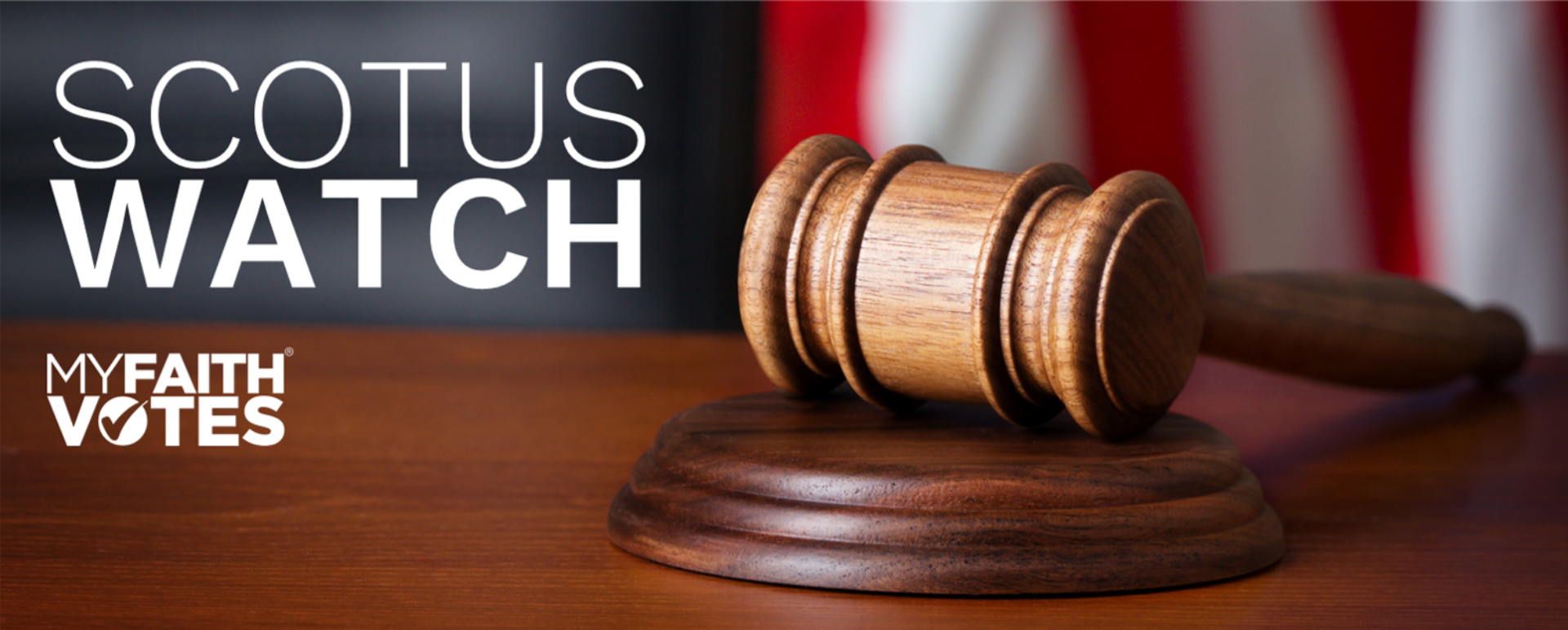
SCOTUS Watch | Apr 19, 2019
This month the justices will hear oral arguments in 13 cases, which will conclude all of the oral arguments for this term. The Supreme Court will issue rulings on the nation’s most contested cases, expected by the end of June.
SUPREME COURT CASE UPDATE FOR APRIL:
Below are three cases worth highlighting for which SCOTUS will hear oral arguments for this month.
Case 1: Department of Commerce v. New York
In 2018, Commerce Secretary, Wilbur Ross announced that he would reinstate a citizenship question on the 2020 census. The question was asked from 1820-1950 and re-introduced to the census in 2020 to assist the U.S. Department of Justice ensuring voting rights are not abused. This decision sparked outrage in states across the nation. New York, Maryland and California filed lawsuits claiming the question would violate the Enumeration Clause and the Administrative Procedure Act. Their main concern is that illegal residents in the U.S. would be far less likely to respond to the census and could fear deportation. The census must be finalized and printed in June leaving little time for this legal battle, which prompted the federal government to request the Supreme Court expedite this case without first requiring the appeals courts to hear the case.
The central question in this case: Did the district court error in enjoining the secretary of the Department of Commerce from reinstating a question about citizenship to the 2020 decennial census on the ground that the Secretary’s decision violated the Administrative Procedure Act, 5U.S.C. 701 et seq.? The Supreme Court will hear oral arguments for this case on April 23, 2019.
Case 2: lancu v. Brunetti
This case received extensive attention in recent weeks. Erik Brunetti attempted to register his clothing brand trademark with the U.S. Patent and Trademark Office but was denied because of the vulgar word he was trying to trademark. Brunetti brought the case before the United States Court of Appeals, and the court found that the U.S. Patent and Trademark Office violated his First Amendment rights. In 2017, the Supreme Court ruled on a similar case, Matal v. Tam which also challenged offensive trademarks. In that case, the justices unanimously ruled that the trademark should be allowed. Justice Samuel Alito said, “Speech may not be banned on the ground that it expresses ideas that offend.” The justices will be considering the Lanham Act which prohibits “immoral” or “scandalous” trademarks. The justices, and those in court, struggled not to use vulgar language as they sought to discuss the case in oral arguments. The Deputy Solicitor General referred to Brunetti’s company name as a “profane past participle form of a well-known word of profanity and perhaps the paradigmatic word of profanity in our language." This case speaks to a shift in our culture where vulgar language is becoming more mainstream.
The central question in this case: Is section 1052(a)’s prohibition on the federal registration of “immoral” or “scandalous” marks facially invalid under the Free Speech Clause of the First Amendment? The Supreme Court heard oral arguments for this case on April 15, 2019.
Case 3: McDonough v. Smith
As we quickly approach another presidential election year, this case should draw interest. In New York, under Democratic Commissioner of the Rensselaer County Board of Elections, Edward McDonough alleged fraud took place in a primary election. In 2009, a special prosecutor, Youel Smith, was appointed to investigate. Smith targeted McDonough and allegedly fabricated evidence and faulty DNA analysis. A grand jury indicted McDonough on multiple felonies based on that evidence. The first trial ended in a mistrial and the second, in 2012, resulted in McDonough’s acquittal. In 2015, McDonough filed a lawsuit against Smith claiming falsified evidence was used against him. The Northern District Court of New York and the Second Circuit Court both ruled that the statute of limitations on the case had run out.
The central question in this case: Does the statute of limitations for a Section 1983 claim based on fabrication of evidence in criminal proceedings begin to run when those proceedings terminate in the defendant’s favor or when the defendant becomes aware of the tainted evidence and its improper use? The Supreme Court heard oral arguments on April 17, 2019.
###
My Faith Votes— is a ministry that motivates, equips, and activates Christians in America to vote in every election, transforming our communities and influencing our nation with biblical truth. An estimated 25 million Christians who are registered to vote, fail to vote in presidential elections. My Faith Votes is on a mission to change this statistic by helping Christians act on their faith and vote in every election. When we pray unceasingly for our nation, think biblically about the issues, and vote consistently in every election the impact of Christians taking action from the local to the state and federal level will be unprecedented.
Website | www.myfaithvotes.org Twitter | @MyFaithVotes Facebook | My Faith Votes

 TV
TV